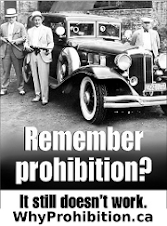"Think of it this way: trying to eradicate the drug industry in Mexico is like trying to eradicate gambling in Las Vegas." ~ Charles Bowden
First, the back story:
U.S.-trained forces reportedly helping Mexican cartels
STEWART M. POWELL
Houston Chronicle
May 15, 2008
WASHINGTON — As many as 200 U.S.-trained Mexican security personnel have defected to drug cartels to carry out killings on both sides of the border and as far north as Dallas, Rep. Ted Poe, R-Humble, told Congress on Wednesday.
The renegade members of Mexico’s elite counter-narcotics teams trained at Fort Benning, Ga., have switched sides, contributing to a wave of violence that has claimed some 6,000 victims over the past 30 months, including prominent law enforcement leaders, the Houston-area Republican told the House Foreign Affairs Committee.
The slaughter has gained urgency amid high-profile assassinations of law officers in Mexico since May 1, claiming six senior officers, five of them with the federal police.
Poe held aloft a dramatic, poster-board-size photograph that he said showed guerrilla-style commandos crossing into the United States.
He said the Department of Homeland Security had documented “over 250 incursions by suspected military forces” into the United States over the past decade.
“I was surprised to hear that the United States has trained Mexican forces and some of those have deserted and become the reason for these attacks,” Poe said.
Officers 'switched sides'
The U.S.-trained Mexican security personnel have "switched sides and became assassins and recruiters for the Mexican drug cartels."
Poe, a former prosecutor and criminal court judge, issued the allegations in an unsuccessful effort to persuade the House Foreign Affairs Committee to revamp President Bush's Merida Initiative.
Bush's blueprint calls for $1.4 billion in training, equipment and law enforcement assistance to Mexico and Central America over three years.
Bush also is seeking $500 million in emergency assistance for Mexico this year as part of the supplemental war spending measure.
Democrats have included only $400 million of Bush's request in the $161 billion war spending measure.
Poe tried to require the Bush administration to evenly split spending between the United States and Mexico rather than sending the entire amount south of the border.
"It seems as though the United States has a history in some cases of giving support (to Mexico) and that support turns around and is used against the very people we're trying to protect, in this case, us," Poe said. "We have no assurance that the equipment we're sending to Mexico won't be turned over to the drug cartels and used against us."
Panel backs original plan
Rep. Michael McCaul, R-Austin, also tried to persuade the Democratic-controlled panel to shift part of the Mexico-bound spending to the United States to bolster law enforcement efforts on the border.
McCaul, a former federal prosecutor who specialized in counter-terrorism, called border drug violence "an imminent security threat right on our doorstep" that deserves the same effort as the war on terrorism in Iraq and Afghanistan.
The 50-member panel, led by Rep. Howard Berman, D-Calif., largely endorsed the Bush administration's version of the proposal, expanding assistance beyond Mexico and Central America to include the Caribbean nations of Haiti and the Dominican Republic.
Berman referred Poe's and McCaul's proposed changes to the House Judiciary Committee, saying their plans for greater spending by U.S. law enforcement along the border fell within that panel's jurisdiction. - http://www.thetreeofliberty.com/vb/showthread.php?t=18326 ~
Excerpts from Rolling Stone: The War Next Door
By Guy Lawson Posted Nov 13, 2008
Indeed, much of the current bloodshed can be traced to the special forces that Mexico trained to find and arrest drug traffickers, receiving instruction from the U.S. military on tactics, intelligence-gathering, air assault and advanced weaponry. In the late 1990s, one of the new Gulf cartels began recruiting these American-trained soldiers to work as hired guns against the Sinaloan cartels, offering vastly higher wages than the government. Known as "Los Zetas" — the Mexican police's term for a high-ranking official — these mercenaries are now the most violent force in Mexico, moving massive amounts of drugs into the U.S. while murdering journalists and police and politicians who challenge their authority. Led by Heriberto "the Executioner" Lazcano, the Zeta paramilitaries are far more sophisticated in their weaponry and combat skills than the hapless and corruption-addled policía. It is as if the Navy SEALs or an FBI SWAT team went to work for the Russian mob.
The surest way to curb the violence is the one the U.S. government refuses to consider. "There is no national conversation about legalization, and we need to start doing that," says David Shirk of the Trans-Border Institute. "From the Mexican point of view, decriminalization would rob organized crime of the monopoly it now has in the black market. The monopoly is what gives the drug traffickers enormous resources. They can challenge and compromise the state in extremely dangerous ways. They use profits we're creating to undermine our efforts to fight them." ~
Those who do not learn from history are doomed to repeat it....
Canada to Train Mexican Officers Fighting Drug Cartels
By Andrew Meyada Canwest News Service August 9, 2009
Prime Minister Stephen Harper announced Sunday that Canada will train Mexican police officers to assist Mexico in its brutal war against rival drug cartels.
The announcement came as the prime minister touched down here for a two-day summit with Mexican President Felipe Calderon and U.S. President Barack Obama.
Security will be one of the issues on the agenda at the so-called Three Amigos Summit, along with the global recession, the swine-flu outbreak and climate change.
Through the Anti-Crime Capacity Building Program, Canada will invest as much as $15 million a year in projects across the Americas that combat the illicit drug trade, corruption, human trafficking and other regional problems.
Slightly more than $430,000 will go to Mexico to help it fight its drug war, which claimed more than 6,000 people last year, almost double the number of deaths in the previous year.
Global drug cartels in Mexico have been feuding over access to the lucrative North American market. The U.S. State Department, for example, estimates that 90 per cent of the cocaine that enters the United States flows through Mexico.
Calderon has staked his presidency on his government's aggressive response, vowing to defeat the cartels by the time his term ends in 2012. After taking office in late 2006, Calderon sent thousands of troops to back up the police in drug-trafficking hot spots.
Under the program announced Sunday, the RCMP will train 300 mid-level Mexican police officers with the help of the United States and other countries. The Mounties will also train 32 new police commanders in such areas as police management, investigation and intelligence skills.
A government official who briefed reporters on the condition of anonymity said the Canadian government could provide more funding if Mexico requests it.
Funding for the program had already been earmarked in the January federal budget. ~
I'm sure the Mexican Cartels eagerly await their new batch of Canadian trained recruits. I hope Canadian taxpayers will be happy with their investment. And for some reason I am reminded of a quote, from Homer Simpson no less: "Prohibition? HA! They tried that in the movies and it didn't work."
Charles Bowden, an author and reporter who has extensively covered Mexico's Drug War speaks with Democracy Now! The video and full text of the interview can be found here. The story of Emilio Gutiérrez is on Mother Jones.
UPDATE May 2010 - (Mexican President Felipe Calderone is right this minute addressing Canadian Parliament and speaking of the Drug War) I'd like to remind everyone:
After 40 years, $1 trillion, US War on Drugs has failed to meet any of its goals
I'm just sayin'.....














